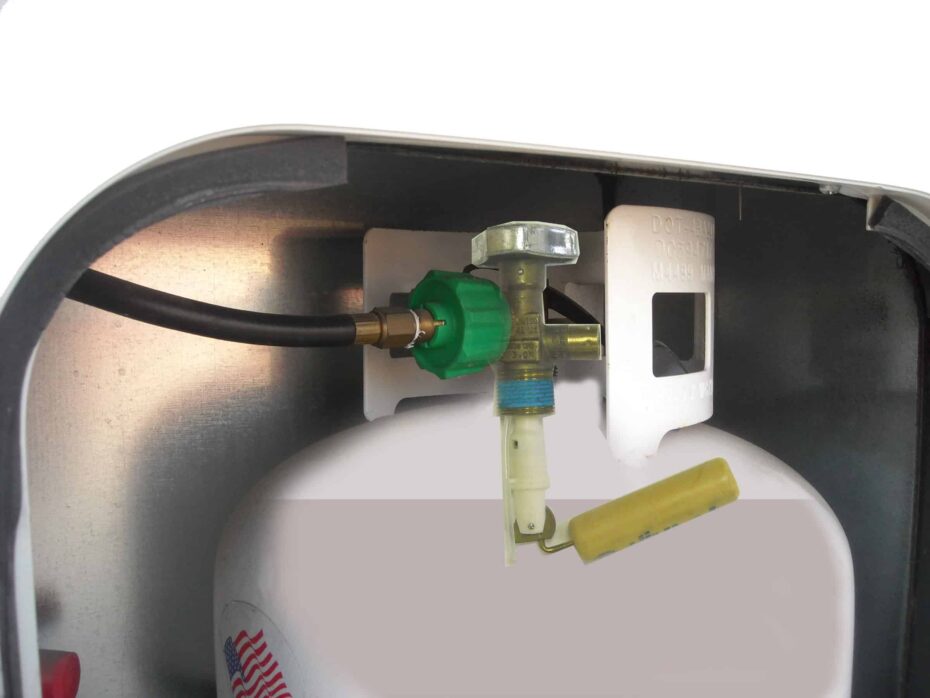Propane regulators are essential components of propane gas systems, regulating the flow of gas from the tank to the connected appliances. A faulty regulator can lead to inefficient fuel usage, dangerous leaks, or even pose a fire hazard. Regularly inspecting and maintaining your propane regulator is crucial for the safe operation of your gas system. In this comprehensive guide, we will outline various signs and symptoms that indicate a faulty propane regulator. By being aware of these indicators, you can take prompt action and ensure the continued safety and functionality of your propane system.
Low Flame or Weak Gas Flow
One of the most noticeable signs of a faulty propane regulator is a consistently low flame or weak gas flow from your appliances. When you rely on propane-powered devices such as stoves, grills, or other equipment, it becomes evident if they are not generating sufficient heat or if the flame appears significantly smaller than usual. These indications could point to a problem with the regulator.
This issue typically arises when the regulator becomes clogged or damaged, causing a restriction in the gas flow. When the flow of gas is impeded, it can affect the performance of your appliances, resulting in inadequate heating or weak flames. Another potential cause for reduced gas flow is an obstructed gas line, which may occur due to debris accumulation or damage to the hose.
If you come across this symptom, it is crucial to investigate the matter further to prevent potential hazards and ensure the proper functioning of your propane-powered devices. Contact a professional technician who specializes in propane systems to diagnose the problem and undertake any necessary repairs or replacements. Ignoring this issue can lead to safety concerns and further damage to your equipment, so prompt action is essential.
Inconsistent Flame

An inconsistent flame is another warning sign of a faulty propane regulator. If your propane-fueled appliance experiences fluctuating flames, such as sudden surges or periods of no flame at all, it may indicate an issue with the regulator’s ability to maintain a consistent gas pressure. This irregular pressure can lead to inconsistent fuel combustion and affect the performance of your appliances. Monitor the flame carefully and if you observe any abnormal behavior, it is advisable to inspect the regulator for possible faults or damages.
Strong Smell of Gas
A strong smell of gas near your propane system or appliances is a serious indication of a potential gas leak. A faulty regulator can cause leaks at the connection points, which pose a significant safety risk. Propane gas has an added odorant to help detect leaks easily. If you detect the distinct smell of rotten eggs or sulfur, it is crucial to take immediate action. Turn off the gas supply, ventilate the area, and avoid open flames or any potential sources of ignition. Contact a professional propane service provider to inspect and repair the faulty regulator to prevent any accidents or further damage.
Frost Buildup on the Regulator

Another telltale sign of a faulty propane regulator is the presence of frost or ice buildup on the regulator itself. This occurs when the regulator is unable to control the pressure properly, leading to rapid cooling of the gas. The condensation freezes on the regulator’s surface, forming ice or frost. If you notice this accumulation during colder months or when the system is under heavy use, it is crucial to address the issue promptly. Frost buildup can impair the regulator’s performance, causing improper gas flow or even complete failure. Regularly inspect the regulator for any frost or ice, and if present, consult a professional to diagnose and resolve the underlying problem.
Unresponsive Pressure Gauge
Most propane regulators are equipped with pressure gauges to provide an indication of the gas pressure within the system. An unresponsive or erratic pressure gauge can suggest a faulty regulator. If the pressure gauge consistently shows no reading or displays inconsistent values, it is crucial to investigate the issue further. A malfunctioning pressure gauge can lead to inaccurate readings, making it difficult to assess the gas pressure accurately. Consult a professional to evaluate and repair the regulator or replace the pressure gauge if necessary.
Whistling or Hissing Sounds

Unusual sounds such as whistling or hissing coming from the regulator or the connections can indicate a potential problem. These noises can occur due to gas leaks or obstructions within the regulator. If you hear such sounds, it is essential to act promptly. Turn off the gas supply, ventilate the area, and inspect the regulator and connections for any visible damage or loose fittings. Do not attempt to fix the issue yourself; instead, contact a professional technician who is trained in handling propane systems to diagnose and resolve the problem safely.
Difficulty in Ignition
If you are experiencing difficulty in igniting your propane-powered appliances, it may indicate a faulty regulator. The inconsistent flow of gas due to a malfunctioning regulator can affect the ignition process. You may notice delayed or intermittent ignition, requiring multiple attempts to light the appliance. This can be a frustrating and potentially dangerous situation. It is important not to force the ignition or use alternative ignition methods, as they may lead to accidents or damage. Instead, have the regulator inspected and repaired by a qualified professional to ensure proper functioning and reliable ignition.
Conclusion
Identifying the signs of a faulty propane regulator is crucial for maintaining a safe and efficient gas system. By paying attention to indicators such as low flame, inconsistent flame, strong smell of gas, frost buildup, unresponsive pressure gauge, whistling or hissing sounds, and difficulty in ignition, you can detect potential problems early on. Promptly addressing any issues with your propane regulator through professional inspection and repair will help prevent safety hazards, optimize appliance performance, and ensure the continued reliability of your propane system. Regular maintenance and periodic inspections of your regulator are essential for a worry-free and safe propane experience.

